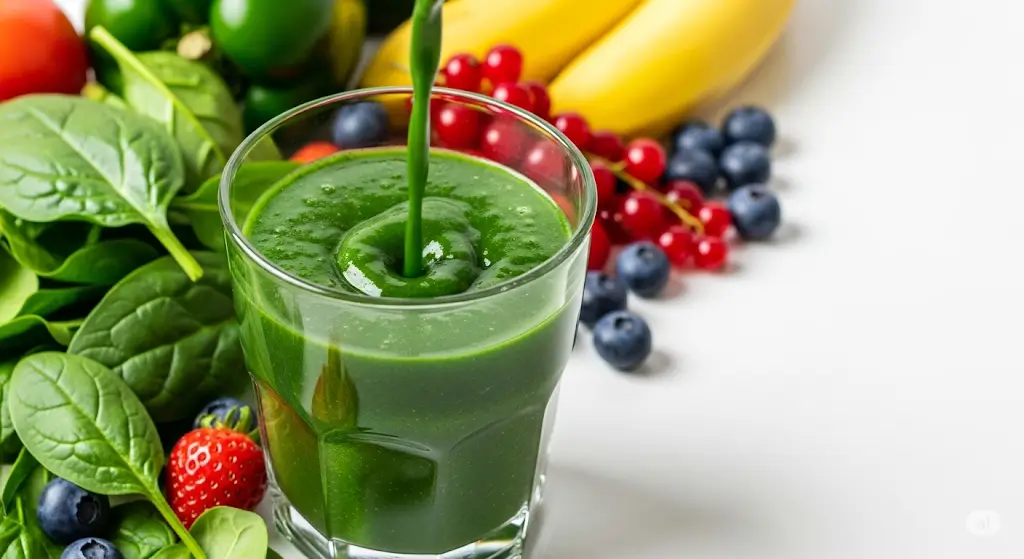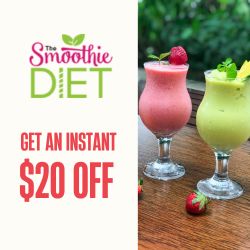Unlock Your Health Potential: A Deep Dive into The Smoothie Diet
In an increasingly health-conscious world, the quest for effective and sustainable ways to manage weight, boost energy, and improve overall well-being is constant. Amidst a plethora of dietary trends, The Smoothie Diet has emerged as a particularly popular contender, promising significant results in a relatively short period. But what exactly is this program, how does it work, and can it truly deliver on its ambitious claims? This comprehensive guide will explore every facet of The Smoothie Diet, from its core principles to its potential benefits and crucial considerations, helping you decide if it’s the right path for your health journey.
What Exactly Is The Smoothie Diet? A 21-Day Transformation Unpacked
Created by health coach Drew Sgoutas, The Smoothie Diet is pitched as a 21-day rapid weight loss and health improvement program. Its fundamental premise revolves around replacing two of your three daily meals with specially formulated, nutrient-dense smoothies. The third meal is a solid, healthy meal designed to be low in calories and complementary to the smoothie intake.
The program isn’t just a collection of recipes; it’s a structured plan. Participants receive a detailed 21-day schedule outlining which smoothies to consume, specific “flex days” (often one per week) where a more varied but still healthy diet is encouraged, and guidelines for the single solid meal. Crucially, it also includes shopping lists to make grocery trips easier, and detailed instructions for preparing the smoothies. The core idea is to create a significant calorie deficit while flooding the body with vitamins, minerals, and fiber from fruits and vegetables, theoretically leading to rapid weight loss and improved bodily functions. An optional “detox” phase sometimes precedes the main 21-day plan, suggesting an even more intensive initial cleanse.
The Allure of Smoothies: Why People Turn to This Diet
The appeal of The Smoothie Diet is multi-faceted, drawing in individuals seeking various health improvements. Here are some of the most compelling reasons people opt for this program:
Significant Weight Loss
This is arguably the primary draw. By replacing calorie-dense meals with lower-calorie, nutrient-rich smoothies, participants often experience a substantial calorie deficit. This deficit, combined with the metabolism-boosting potential of some ingredients, can lead to noticeable weight loss within the 21-day period, often ranging from 5 to 15 pounds. For many, this rapid initial success provides strong motivation to continue healthier habits.
Increased Nutrient Intake
For individuals struggling to consume enough fruits and vegetables, The Smoothie Diet offers a convenient solution. The recipes are packed with a wide array of produce, ensuring a high intake of essential vitamins, minerals, antioxidants, and fiber. This nutrient boost can contribute to improved skin health, stronger immunity, and better overall vitality.
Unmatched Convenience and Simplicity
Meal preparation can be a major hurdle for many people trying to eat healthy. Smoothies, by contrast, are incredibly quick and easy to prepare. A typical smoothie takes just minutes to blend, making it ideal for busy mornings or quick lunches. The provided shopping lists and meal plans further simplify the process, eliminating guesswork and reducing decision fatigue.
Improved Digestion and Gut Health
The high fiber content from fruits, vegetables, and other ingredients like flax seeds or chia seeds in the smoothies can significantly improve digestive regularity. Fiber acts as a prebiotic, feeding beneficial gut bacteria, which in turn can lead to a healthier gut microbiome and reduced bloating.
Boosted Energy Levels
When your body receives a steady supply of easily digestible nutrients, it can convert them into energy more efficiently. Many participants report feeling more energetic and less sluggish, attributing this to the nutrient density of the smoothies and the reduction in processed foods and heavy meals that can cause post-meal fatigue.
A “Reset” for Eating Habits
For those stuck in a rut of unhealthy eating, The Smoothie Diet can serve as a powerful “reset button.” The initial 21-day period encourages breaking ties with processed foods, sugary drinks, and unhealthy snacking. This can lead to a reduction in cravings for unhealthy foods and a greater appreciation for natural, wholesome ingredients, potentially fostering healthier habits beyond the program’s duration.
Navigating The Plan: How to Successfully Follow The Smoothie Diet
Success on The Smoothie Diet hinges on adherence and preparation. Here’s how to maximize your chances of achieving your goals:
Thorough Preparation is Key
Before you even blend your first smoothie, dedicate time to planning. Review the 21-day schedule, create your shopping lists, and stock your pantry with the necessary fruits, vegetables, protein sources, and healthy fats. Many people find it helpful to pre-portion ingredients into freezer bags or containers, making daily blending even quicker.
Strict Adherence to the Schedule
The program’s effectiveness relies on consistently replacing two meals with smoothies and carefully planning your one solid meal. Resist the urge to snack excessively or deviate from the guidelines, especially in the initial days. This discipline helps establish the calorie deficit needed for weight loss.
Prioritize Hydration
While smoothies contribute to fluid intake, ample water consumption remains crucial. Water helps with satiety, digestion, and overall bodily functions. Aim for at least 8 glasses of plain water daily, in addition to your smoothies.
Listen to Your Body
While the plan is structured, it’s important to pay attention to your body’s signals. If you feel excessively hungry or low on energy, assess your solid meal choice or consider adding a small, approved healthy snack. The goal is to feel nourished, not deprived.
Transitioning Beyond 21 Days
For sustained results, plan your post-diet strategy. The program often includes advice for reintroducing foods and maintaining healthy eating patterns. This transition phase is critical to prevent rebound weight gain and integrate the healthy habits learned into your long-term lifestyle.
Considering the Downsides: Important Factors to Ponder
While The Smoothie Diet offers numerous advantages, it’s essential to approach it with a balanced perspective and be aware of potential drawbacks:
Sustainability and Long-Term Weight Management
The rapid weight loss is often appealing, but the highly restrictive nature of the diet can make long-term adherence challenging. Once the 21 days are over, if participants revert to old eating habits, weight regain is a common concern. True sustained weight loss often requires a more gradual, habit-based approach.
Potential for Nutritional Deficiencies
While smoothies are packed with nutrients, replacing two solid meals daily might lead to insufficient intake of certain macro and micronutrients, particularly protein and healthy fats, if not carefully planned. Adequate protein is crucial for satiety and muscle preservation during weight loss.
Lack of Chewing and Satiety
For some, the psychological satisfaction of chewing solid food is paramount for feeling full. Liquid meals, even if nutritionally complete, might not provide the same level of satiety, potentially leading to increased hunger or a desire to chew, which could make adherence difficult.
High Sugar Content from Fruits
Although natural, a diet heavily reliant on fruit-based smoothies can lead to a high intake of natural sugars. For individuals with blood sugar sensitivities, diabetes, or those carefully monitoring sugar intake, this is a significant consideration. Balancing fruit with more vegetables and healthy fats in the smoothies is crucial.
Financial Cost of Ingredients
Consuming a large quantity of fresh fruits, organic vegetables, and specialized ingredients (like protein powder or superfoods) for daily smoothies can become relatively expensive, especially compared to more traditional, whole-food-based diets.
Importance of Professional Consultation
Before embarking on any restrictive diet like The Smoothie Diet, it is highly recommended to consult with a healthcare professional, such as a doctor or a registered dietitian. They can assess your individual health status, nutritional needs, and potential interactions with any existing medical conditions or medications, ensuring the diet is safe and appropriate for you.
Who Is The Smoothie Diet For?
The Smoothie Diet might be particularly appealing to individuals who:
- Are looking for a structured program to kickstart weight loss.
- Enjoy the convenience and taste of smoothies.
- Need a clear, step-by-step guide for healthy eating.
- Are willing to commit to a short-term, intensive dietary change.
Final Thoughts: A Tool, Not a Magic Bullet
The Smoothie Diet can be an effective tool for initial weight loss and for jumpstarting healthier eating habits. Its emphasis on nutrient-dense foods and structured planning makes it appealing for those seeking a guided approach. However, like any restrictive diet, its long-term success hinges on the individual’s ability to transition to sustainable, balanced eating patterns after the program concludes.
Ultimately, the best diet is one that is balanced, sustainable, and enjoyable. While The Smoothie Diet can provide a powerful short-term boost, integrating its principles of healthy, whole-food-based nutrition into a long-term lifestyle, perhaps with the guidance of a professional, is the key to lasting health and well-being.



